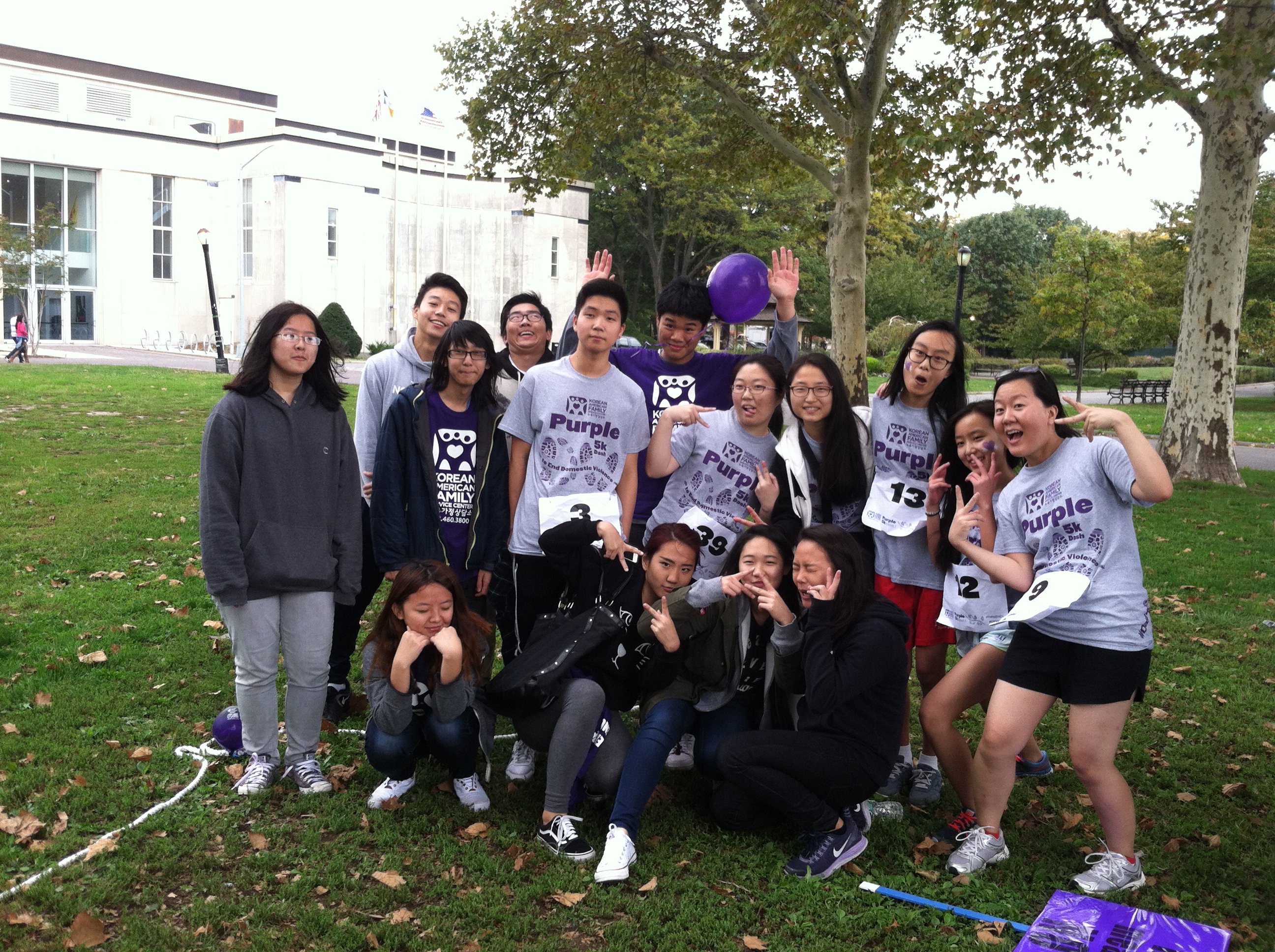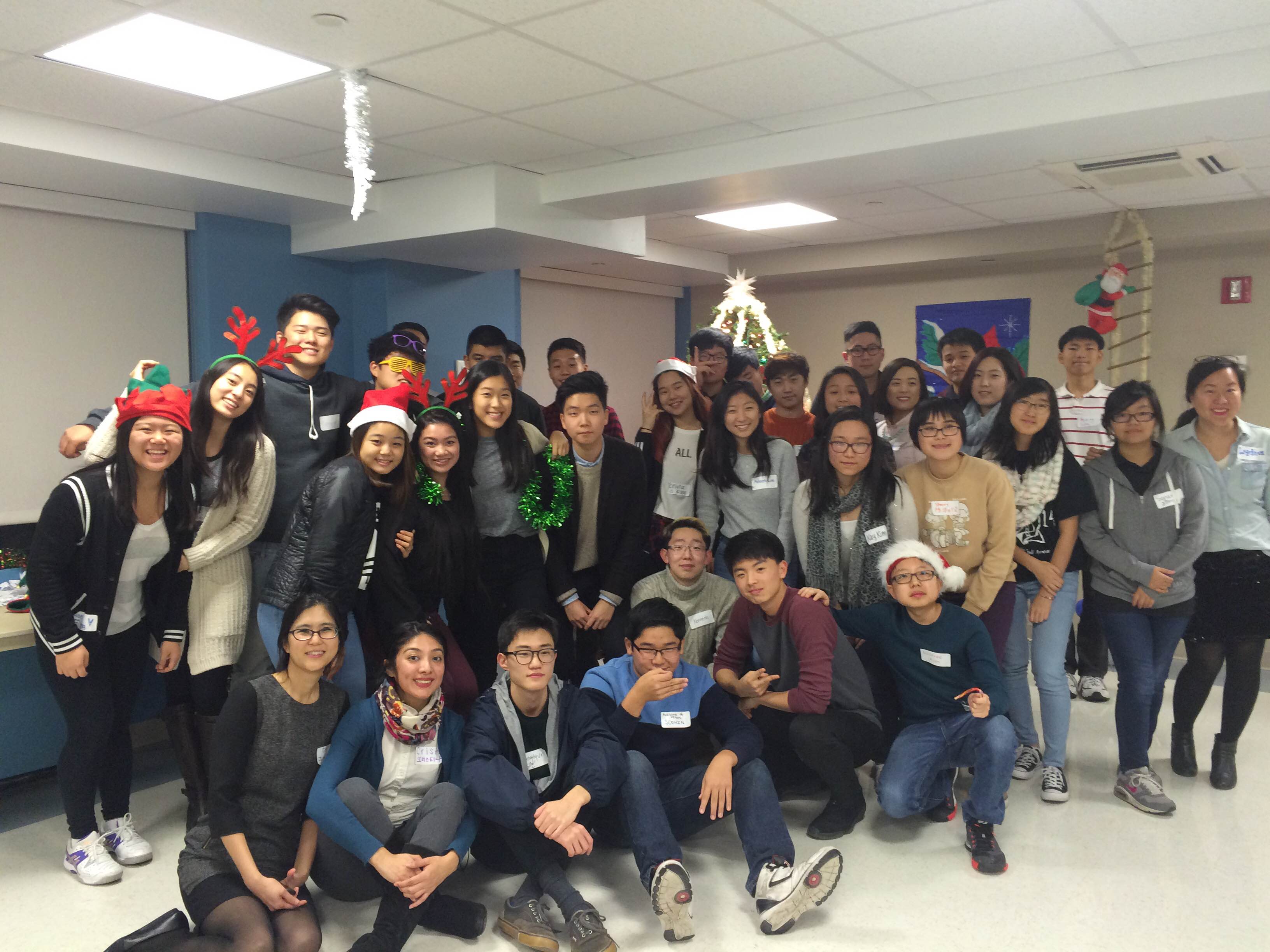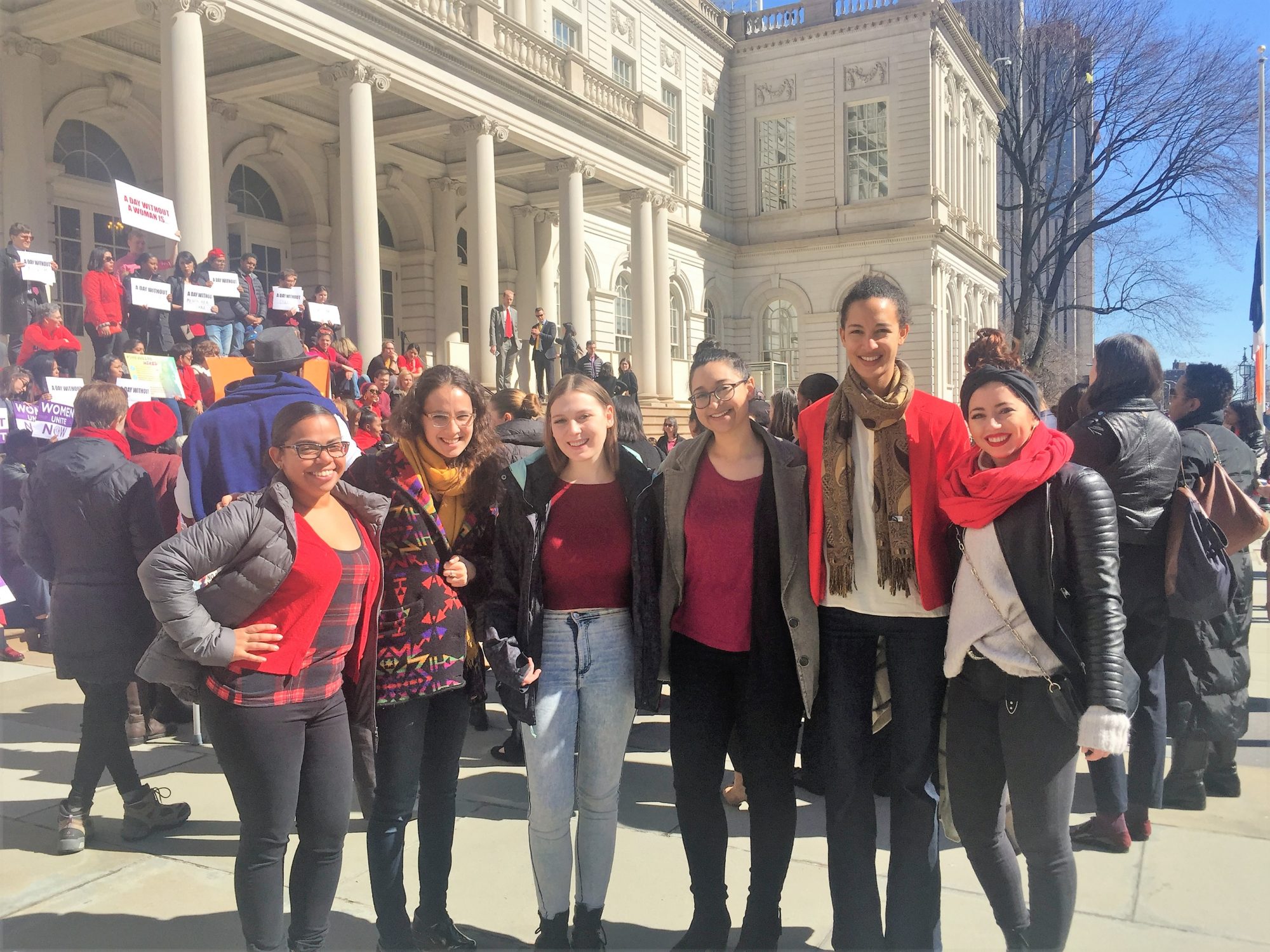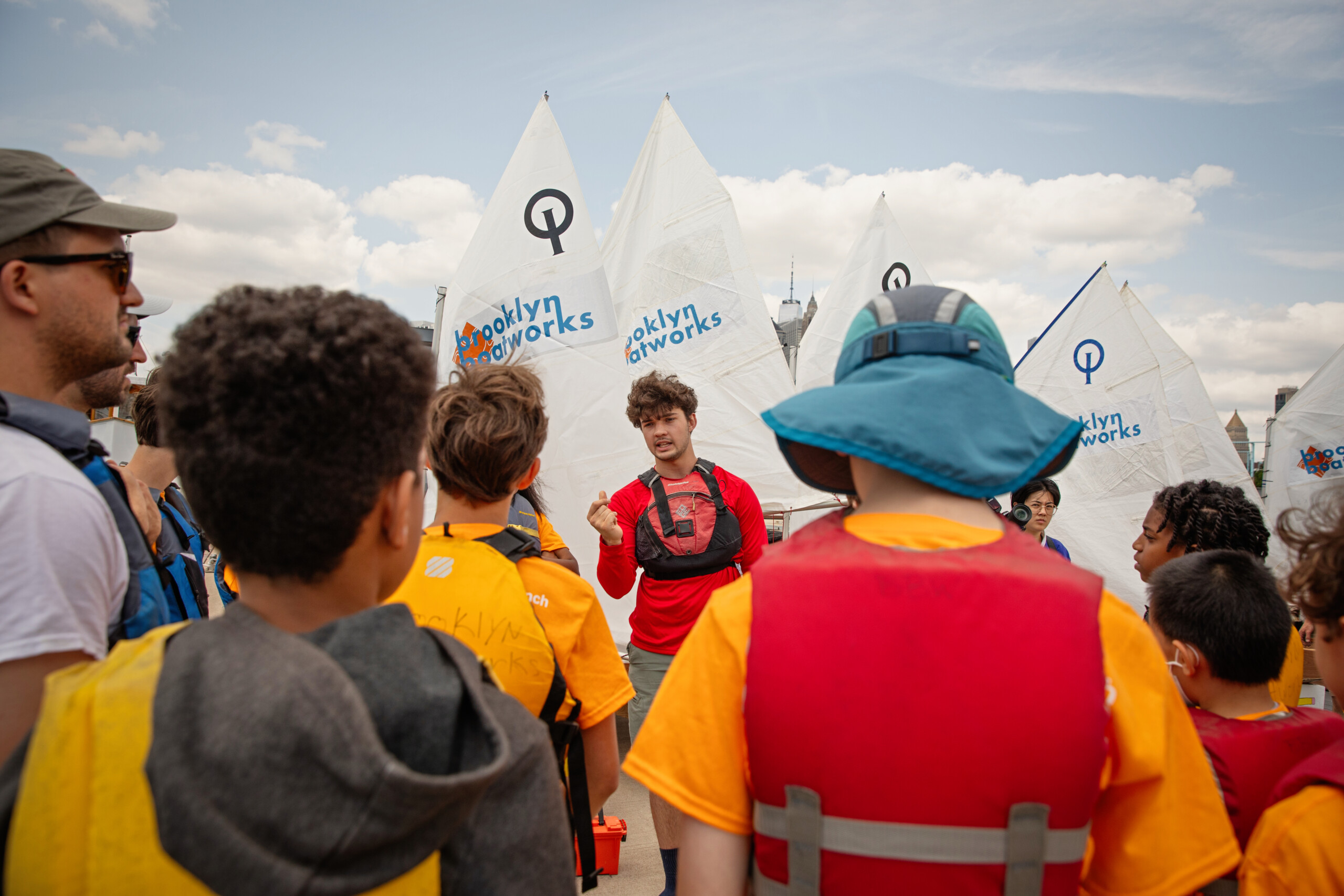Our Youth Service Improvement Grants support nonprofit organizations that serve youth ages 5-25 in the five boroughs of New York City. These $25,000 awards fund specific, standalone projects to improve existing programs at the point of service.
As we approach the final application deadline of 2017, we share insights from recent grantees on how they identified a salient issue in their existing programs, developed a rationale for an improvement plan that would address the issue, and tracked the results of the improvement over time.
Day One New York: Survivors to Leaders
Day One partners with youth to end dating abuse and domestic violence through community education, supportive services, legal advocacy, and leadership development.
In addition to case management services, Day One’s clients often require support in accessing public services and navigating the court system. Amid an increase in the number of youth who required such assistance, Day One found that it did not have sufficient capacity to deliver the help its clients needed.
“Day One’s social services component was launched in 2011 as a vehicle for trauma recovery through counseling. When we identified the need for more services to promote client stability, the potential workload of case management clients became critical.”

Identifying an improvement plan
Day One didn’t have to look far to identify a resource for improving their program. Rather, they sought to train existing members of their Youth Voices Network—themselves former clients of Day One’s services—to be peer advocates for current clients. The young survivors from the Youth Voices Network, many of whom had prior experience dealing with City agencies, would receive intensive training to become “Peer Advocates and Leaders.” After receiving training, they would be matched to clients on a case-by-case base.
“When participants completed services and joined the Youth Voices Network as volunteer advocates, they expressed a desire to become more involved with survivor advocacy and support.”

Tracking the results
“Satisfaction surveys offered us anecdotal feedback from clients and peer advocates. Our staff also noted a genuine improvement in the experiences of clients who received the support of a peer advocate, for instance, during court dates throughout the project.”
Epic Theatre Center: Epic Remix

Epic Remix is an after-school program operated by the Epic Theatre Center, which provides high-school students opportunities to work with professional teaching artists to write and perform adaptations of Shakespeare’s plays.
While outcomes among Epic’s participants were already largely positive, including a 95 percent graduation rate at among participants at partner schools, their college attendance and retention rates were much lower.
“The challenges facing the students included lack of access to college preparation resources, lack of college-educated role models, and lack of knowledge about the admissions process. While college-going rates among youth in the program were higher than those of their peers, 40 percent of Remix students were still not going to college after high school.”

Identifying an Improvement Plan
“When we were formulating a strategy to tackle these challenges on a broader scale, test prep quickly became a top priority. As we experimented with test prep options, we discovered a critical relationship between artistic text analysis work and college exam work, and their collective role in raising scores to a competitive level.”
For their Youth Service Improvement Grant, Epic proposed to partner with CATES Educational Testing Service to establish college preparatory services for all Epic Remix participants. CATES instructors trained Epic teaching artists to deliver SAT/ACT preparation, as well as support with applications and general awareness about higher education.
“CATES had previously piloted a 12-week program to improve SAT scores at partner Bronx HS for Writing and Communication Arts within the auspices of Remix in spring of 2014. While this pilot produced incremental success, student feedback indicated that these activities were seen as un-integrated—the test tutor, after all, was not one of their trusted Artist–Mentors. From this pilot, however, the idea for our improvement plan became self-evident to both organizations: we would train CATES’ teaching artists as Epic Artist-Mentors and vice versa, creating versatility in a number of artists who can act as this single, “integrated” mentor. In the process, we’d develop an entirely new set of ideas for how to horizontally integrate test prep (not only hard skills, but the equally important soft skills of confidence, goal-setting, and dealing with failure) across every aspect of Remix.”

Tracking the results
“The primary gauges of success were SAT and ACT test score improvement and increases in college application and attendance rates among non-NEXT participants. We saw significant increases in SAT and ACT test scores for these seniors who participated in the Remix project in 2015-16, averaging 19 percent increases in the reading and writing sections and 12 percent in math. We also saw improved confidence in our current juniors, in terms of having a strategic plan for test preparation. And, as an indirect but important result, in fall of 2016 we saw applications to private colleges increase by over 25 percent. Finally, 96 percent of Remix seniors in 2015-16 are currently attending college.”
Korean American Family Service Center: Youth Community Project Team

The Korean American Family Service Center is dedicated to helping victims of domestic violence and sexual assault in NYC. The Center’s Youth Community Project Team is a weekly program that has evolved from a service-learning project for Korean American high-school students in underserved communities, to a mission-aligned youth leadership program that focuses on preventing relationship abuse and promoting healthy, non-violent communities.
While the Youth Community Project Team has been met with high demand among students, it has lacked a consistent, culturally relevant curriculum to provide a clear and seamless flow of learning and growth across the entire high-school years for its participant population of Asian American youth.
Identifying an improvement plan

“We experienced high staff turnover for the Youth Program Coordinator position—as a result, each new coordinator brought different ideas to the program, unfortunately causing confusion to program participants during the transition periods. Feedback from our students brought the realization that some of our sessions featured content that they had already gone over in previous years. If there was an easy way of knowing what topics had already been covered in the program, we could have adapted sessions to better fit the students’ needs.”
To strengthen its programming and make its activities more culturally relevant, the Center applied for and received a Youth Service Improvement Grant to work with a consultant who would assist with the development of a youth-led curriculum and would help codify concrete values, goals, activities, and measurement tools.

“After a series of discussions with youth leaders and staff members, we realized the urgent need of developing a solid set of curriculum on healthy relationship and relationship abuse that also catered to our cultural context. We also began to see the need for more culturally specific content for our majority Asian American students. This realization came mainly through questions that the young people would ask and points that they would bring up during discussions. We would seek to provide students with content on healthy and unhealthy relationships and information specific to the challenges we face navigating different cultures.”
Tracking the results
While it is too early to report on outcomes of the improvement plan, the Center has identified staff to monitor and oversee the progress of the plan, and they intend to conduct pre- and post-program surveys of student participants.
As shown here, strong applications for the Youth Service Improvement Grants program focus on well-conceived improvement plans that respond to compelling issues related to an existing service. We invite you to browse the full archive of Youth Service Improvement Grant projects, and apply by September 7, 2017 if your organization is a good fit.
Learn more about youth service improvement grants: https://wtgrantfoundation.org/funding/youth-service-improvement-grants.



